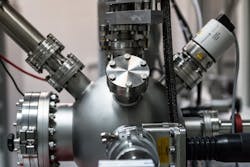Automation Market Addresses Water & Wastewater Needs
About the author:
Clint Bundy is managing director for Bundy Group. Bundy group is a partner member of the Control System Integrators Association (CSIA). Bundy can be reached at [email protected] or 704.942.8300.
The water and wastewater market continues to demonstrate and exhibit an increasing adoption of controls and automation solutions to address mission-critical needs. This market demand for technology and talent is creating a wave of investment and mergers and acquisitions activity, resulting in an evolving competitive landscape.
There are many examples of controls solutions that can be found in the water and wastewater market today. Furthermore, there are a range of cybersecurity systems constantly being developed and instituted to safeguard the control systems and other aspects of these networks. Technology-driven monitoring and security systems allow municipalities, private water management companies and other key players in the market to accomplish many goals.
This includes monitoring key systems within a water network, such as pump stations, elevated storage tanks, lift stations and floodgates; minimizing engineer and staff time devoted to commodity tasks, such as driving to a pump station to check its operating status; providing comprehensive cybersecurity measures, which allow a client to safeguard its network from external threats and meet regulatory obligations; and allowing a client to save money through energy management control systems.
“Automation is a key ingredient in driving efficiency and accuracy. SCADA can be a critical component in helping to drive a high-quality operation,” said John Freebody, chief rinancial officer for Inframark, a nationally focused water infrastructure operations company. “At Inframark, we are very keen to leverage these platforms wherever possible to complement our standard operating procedures to maintain a safe and secure environment for our most critical resource.”
The growing demand for controls, automation and cybersecurity measures also is creating a wave of investment and acquisitions in the water and wastewater space. Active entities seeking to acquire include both industry (i.e. strategic) buyers and financial investor (i.e. private equity) buyers. There are numerous reasons for the substantial increase in mergers and acquisitions activity for controls, automation and cybersecurity companies focused on the water & wastewater market.
Buyers usually are interested in investing in growth-oriented markets. The U.S. water and wastewater market—approximately $743.7 billion market in 2019—is anticipated to grow to $914.9 billion by 2023. Additionally, the global industrial automation market is expected to reach $352 billion in 2024 relative to a 2015 market size of $183 billion (i.e. a 6.6% compounded annual growth rate). Finally, cybersecurity markets globally are increasing at a 14.3% compounded annual growth rate from just over $3 billion in 2017 to approximately $4 billion in 2019, and it is projected to reach $6 billion in 2022.
Aging water infrastructure, increasing cybersecurity threats on water networks, and regulatory burdens placed on municipalities and private water management companies provide buyers with confidence in the long-term viability of controls and automation solutions for water and wastewater.
“The EPA has been driving mandatory water and wastewater upgrades in Ohio where I live. City engineers have been telling me about the search for control system integrators who are not only technology experts but who also can manage projects on time and on budget,” said Gary Mintchell, founder of The Manufacturing Connection, a controls-focused consulting company.
The fragmented nature of the controls and automation market for water and wastewater provides buyers with the opportunity to scale up by acquisition. Buyers can purchase other industry participants, which usually are smaller in size but plentiful in the market in terms of numbers, as add-on acquisitions to the buyer’s existing platform. There is a massive demand for technology and talent as it relates to controls and cybersecurity offerings, and companies that have developed proprietary technology systems and seasoned talent are especially valuable.
“Controls & automation needs are increasingly becoming more complex and customized. Very few providers have proficiency across the broad range of technology platforms and required services available in this market,” said Dave Thomas, President & CEO of SJE, a global manufacturing and services firm focused on the water space. “[It] has leveraged our recent acquisitions to add expertise and capabilities that would be nearly impossible to develop organically.”
With the continued growth of the water and wastewater market, and the industry’s adoption of controls and cybersecurity measures accelerating, the pace of mergers and acquisitions activity is anticipated to grow even further.
“The business strategy of water is changing from a focus on short term budget cycles and shifting to a more comprehensive approach that emphasizes life-cycle infrastructure costs, which in turn requires a more sophisticated approach to controls and automation, one that emphasizes data collection, analysis and management to assist with capital planning decisions,” said Mason Miller, CEO and investor for Dorsett Technologies, a controls and automation technology firm for the water and wastewater market. “As a result, the fragmented SCADA control market will increasingly be consolidated by value-added infrastructure companies like ourselves, who can pair the technology solutions with the capital and analytical capability to provide turn-key solutions to municipal, state and federal customers.”
Whether a company is a control system integration firm, an IoT sensor manufacturer, a controls and automation software-as-a-services company or a cybersecurity technology organization, the increasing presence of strategic and private equity buyers will have profound ramifications on the value of those potential acquisition and investment opportunities.

